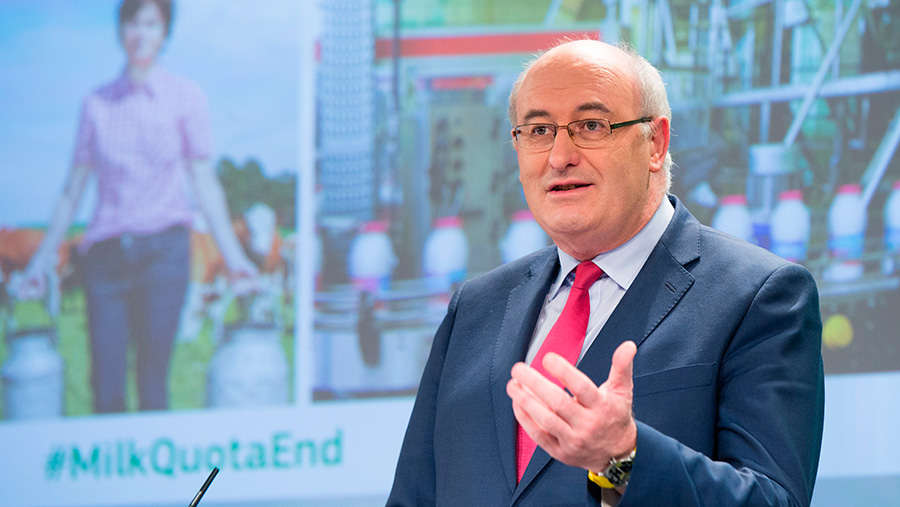EU commissioner Phil Hogan calls for focus on farm science
 Phil Hogan © Isopix/REX/Shutterstock
Phil Hogan © Isopix/REX/Shutterstock Agricultural science has been neglected for too long and needs to be revitalised to help farmers become “smarter, leaner and cleaner”, according to European agriculture commissioner Phil Hogan
Speaking at the European Federation of Animal Science conference in Belfast on Tuesday (30 August), Mr Hogan said farmers needed more and better knowledge about how to produce food sustainably, and science should play a pivotal role in helping them address the challenge.
See also: EU farm chief Phil Hogan lays out his agriculture agenda
“These days we expect farmers to do much more than produce food,” he told delegates.
“We expect them to generate jobs and economic growth, and contribute to environmental targets. Innovation within the sector is key to helping balance these different priorities.
“As a result of various crises in the EU we have fallen behind our targets and allowed agricultural research to become a lower priority than it should be,” he added.
“But there is a resurgent ambition to change this.
“We doubled our investment in the field under Horizon 2020 [the EU programme for research and innovation] and we have made research and innovation a central plank of the rural development programme.”
As a result of various crises in the EU we have fallen behind our targets and allowed agricultural research to become a lower priority than it should be Phil Hogan, EU agriculture commissioner
Brexit concerns
Mr Hogan’s comments came as leading animal scientists expressed their concerns over funding for agricultural science in the wake of the recent Brexit decision.
Liam Sinclair, president of the British Society of Animal Science, said the government had guaranteed funding for agricultural research projects in the short-term.
But the quality of research being used by British farmers risked being damaged unless the government made more assurances over long-term budgets, he said.
“We are also concerned about barriers being created between countries,” he added.
“Animal science relies on links between other organisations, but there are concerns other countries are hesitant to collaborate.
“If the UK can’t collaborate with them, we will lose out on the quality of science, and that will have a huge impact on UK farmers.”
Sinclair Mayne, director of Northern Ireland’s Agri-Food and Biosciences Institute, said many agricultural scientists were worried their bids for funding would not be well received because of uncertainties around the UK’s future relationship with Europe.
“There’s a huge question mark over whether funding will be available for the long-term,” he added. “We need more clarity on the whole issue as a matter of priority.”
